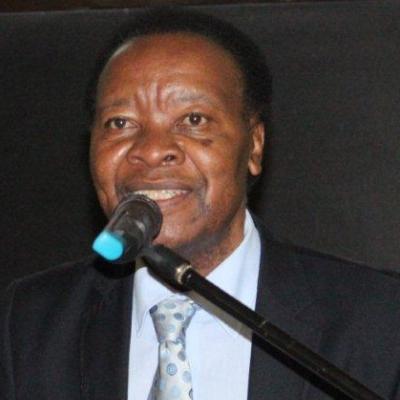
Music has always been part of my life as I have worked with many bands for many years. One thing I have realised is the fact that when one is in a band, they have to accommodate different people with different personalities in order to function as a group. This article gives you an insight into some of my experiences with bands.
By Fred Zindi
Bands are fragile, fraught things. They are like families, except even more combustible, because art is involved. So many things can go wrong in a band. Egos can spiral out of control, personalities can clash, drugs and alcohol can be abused, sexual intrigue can ensue. All these things can wreak havoc. There could even be skill envy where members become jealous of each other. But sometimes the reason behind the break-up of bands is more mundane, if not less emotionally wrenching.
Money is the main reason bands’ break-up. Starting bands that legitimately cannot survive on the income their band is generating tends to get members tired of living well below the poverty line. Each member, one by one, begins to peel off to “fall-back” on their original trade as a vendor, cleaner or teacher and to “start a real life”. Music is not for the faint of heart. For the superstars, it comes down to the perception of fairness. If money was the main reason for the break-up of bands, The Beatles would still be together today because they had all become multi-millionaires at the peak of their careers. In their case, only Paul McCartney and John Lennon were credited for songwriting and if the other band members felt that these guys were getting more than them due to their songwriting prowess, they became envious and if they saw these lead songwriters sitting prettier than them, the marriage would not end pretty. Ringo Starr would probably argue that his drumming in the songs made them more marketable and George Harrison, the other Beatle, would also declare that his lead-guitar riffs should also earn a percentage in songwriting royalty. Although the Beatles made lots of money as a band, it is not only always about money that causes bands to split up. For instance, Lennon met and married Yoko Ono, who had a big influence on the direction the Beatles would go and he was persuaded to leave the band. Sometimes it is significant others who will eventually tug the musician in a direction that is not conducive to the band’s best interests.
Above money, personality clashes have also killed most of the greats.. And it happens at every level. Jonah Sithole left Thomas Mapfumo’s Blacks Unlimited in 1984 due to personality issues. Brian Rusike of Ruva Rangu Ndiwe Chete fame left the Pied Pipers in 1989 after clashing with some band members and Clive “Mono” Mukundu left the Black Spirits in 2007 for the same reason. Only last year, Shiga Shiga of Utakataka Express decided to quit the group. Baba Harare of the Third Generation did the same. The last two felt that they were now ready to start their own solo careers. These are the acts you have heard of, but there are hundreds of bands who never broke out on a mainstream level because they just couldn’t get along. Typically, one member starts to take over control much to the others’ dismay. And the resentment settles in. Or one member takes over the leadership position to uplift the group and no matter how much success they see, it is never enough and the others start questioning the de facto leader — never giving him the recognition, thanks or acknowledgement of the hard work he put in.
If each band member isn’t organised and responsible enough to at least make it to rehearsal or to a show on time or cover simple business duties, the band isn’t going to function. Bands need to be professional especially when dealing with corporate institutions. I remember one group which was billed to perform for 30 minutes at an international conference in Harare from 11:30am to 12 noon for a fee of $2 000. Not all members were present at that scheduled time and a poet replaced the band. The lead guitarist of the band only arrived at 12:30 and still wanted to play, thus disturbing a tightly scheduled programme. This did not happen and the whole band who had anticipated to take home $400 each lost out.
A band in the modern industry needs to be run like a start-up company. No longer can you be strung out, carried into the venue on a stretcher and thrust on stage. It doesn’t work like that. Modern young musicians such as Winky D or Jah Prayzah who are making it work are smart, responsible, hardworking and business savvy. The other thing which causes break-ups in many bands is the ego. This, if let loose and becomes uncontrollable, leads to big misunderstandings among musicians in the band. Every successful musician has an ego. One has to, no matter how humble they are. If they didn’t believe that their songs (and show) deserved an audience paying the ticket price, they would never perform live. That takes confidence and a bit of ego. However, when one of the band members’ ego starts to make him believe that he is better than the others, that is when the band’s days become numbered. There are many examples. I remember Andy Brown walking out on his bandmates in Bulawayo just when the band Ilanga were about to perform before a crowded stadium. This broke my heart as it split Ilanga which was made up of Busi Ncube, Don Gumbo, Brown, Charles Mangena and Keith Farquharson.
There is need to make sure that everyone in the band is on the same page before it’s too late. If the members can’t agree on the musical direction the band is to follow, the band will not function and this is how solo careers typically follow.
- Chamisa under fire over US$120K donation
- Mavhunga puts DeMbare into Chibuku quarterfinals
- Pension funds bet on Cabora Bassa oilfields
- Councils defy govt fire tender directive
Keep Reading
Questions should be asked on whether the band aims at achieving the same goals. Questions such as: “What is the band’s musical direction?” “Do we want to do copyright music or do we concentrate on our own compositions?”
”Do we want to have a family life at home or do we want to live on the road?”
It’s surprising how many bands don’t have the goals discussion early on and three years into the project, when they finally get a big tour out of the country booked, the drummer explains that he does not have a passport or he has to attend a church crusade somewhere, therefore he doesn’t want to tour — seemingly out of nowhere!
There are some musicians who due to stage-fright, believe that it is impossible to get through a concert without serious drug and alcohol use. To me, music on its own triggers instant orgasm. There is no need for drugs to enhance performance.
In my opinion, if performing live isn’t enough of a high for you, then you really should pick another profession. Everyone calls it quits at some point. Being in a band is hard work — coordinating schedules, dealing with flaks and actually hammering out a tolerable song or two is a damn near miracle for some. But those who break through are still destined to quit at some point.
Creative differences are often cited as the leading cause of band break-ups. At first, divergent tastes seem like a good idea. Blending genres leads to new, revolutionary forms of music, right? At some point, ideas clash and either a compromise happens or it doesn’t. When it doesn’t, this is when you see a reggae artiste turning into a jazz solo artiste.
In some rare cases, the solo artiste will actually squeeze out passable songs as was the case with Andy Brown and Busi Ncube after leaving Ilanga, but this serves only to feed an unabated arrogance, which typically leads to tyrannical treatment of their friends and fanbase.
Music is not for the faint-hearted. Finishing a band when you’re still good is really the way to go out.
lFeedback: [email protected]











